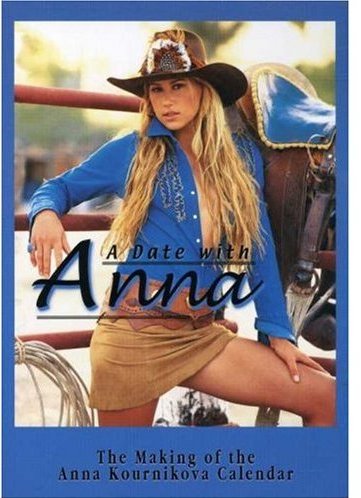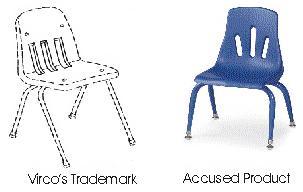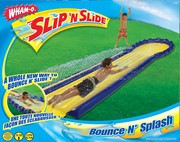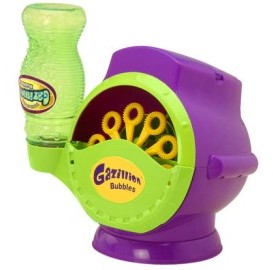Los Angeles, CA – Trademark attorneys file trademark infringement and Lanham Act 43(a) unfair competition lawsuit, on behalf of Dell, in Los Angeles Federal District Court, alleging infringement of Dell’s USPTO registered trademarks against resellers. Dell has been selling personal computers since 1984 and has registered its Dell trademark and variations thereof in more than 180 countries worldwide, and has more than thirty United States federal trademark registrations containing the term Dell. Since its inception, Dell has primarily used a direct sales model to sell directly to consumers rather than through retail outlets, first through telephone and also the Internet. Dell, however, permits a limited number of authorized resellers, which have to abide by Dell’s reseller terms and conditions.
![]() Dell alleges that the four individual defendants enrolled in Dell’s reseller program and became bound by the resale terms, where “defendants agreed (1) to refrain from unauthorized use of Dell’s trademarks; (2) not to resell Dell product without first adding value through the addition of hardware, software, or services; (3) not to resell Dell product on auction-type websites [such as eBay]; and (4) to resell their Dell product to small and medium businesses.” The complaint alleges that the defendants have used aliases to purchase Dell products and sold them through unauthorized trade channels and on eBay in violation of the reseller agreement and have made misrepresentations and misused Dell’s trademarks. For example, the defendants have allegedly sold products on eBay as “new” when they were, in fact, refurbished. The complaint asserts that “Defendants have, through their scheme of deliberate misrepresentation and concealment, purchased millions of dollars worth of Dell products from Dell and resold such product in breach of their contractual obligations to Dell and in violation of Dell’s trademark rights.” The complaint alleges the following causes of action: (1) Trademark counterfeiting and infringement 15 U.S.C. §§ 1114; (2) Unfair competition and false advertising under section 43(a) of the Lanham Act, 15 U.S.C. § 1125(a); (3) Trademark dilution under the Lanham Act section 43, 15 U.S.C. § 1125(c); (4) Unfair competition and false advertising under Cal. Bus. & Prof. Code §§ 17200 and 17500; (5) Unjust enrichment; (6) Breach of contract; (7) Fraud; and, (8) Civil conspiracy. The case is titled Dell, Inc. v. Kizun, et al., CV08-01821 JSL (C.D. California)
Dell alleges that the four individual defendants enrolled in Dell’s reseller program and became bound by the resale terms, where “defendants agreed (1) to refrain from unauthorized use of Dell’s trademarks; (2) not to resell Dell product without first adding value through the addition of hardware, software, or services; (3) not to resell Dell product on auction-type websites [such as eBay]; and (4) to resell their Dell product to small and medium businesses.” The complaint alleges that the defendants have used aliases to purchase Dell products and sold them through unauthorized trade channels and on eBay in violation of the reseller agreement and have made misrepresentations and misused Dell’s trademarks. For example, the defendants have allegedly sold products on eBay as “new” when they were, in fact, refurbished. The complaint asserts that “Defendants have, through their scheme of deliberate misrepresentation and concealment, purchased millions of dollars worth of Dell products from Dell and resold such product in breach of their contractual obligations to Dell and in violation of Dell’s trademark rights.” The complaint alleges the following causes of action: (1) Trademark counterfeiting and infringement 15 U.S.C. §§ 1114; (2) Unfair competition and false advertising under section 43(a) of the Lanham Act, 15 U.S.C. § 1125(a); (3) Trademark dilution under the Lanham Act section 43, 15 U.S.C. § 1125(c); (4) Unfair competition and false advertising under Cal. Bus. & Prof. Code §§ 17200 and 17500; (5) Unjust enrichment; (6) Breach of contract; (7) Fraud; and, (8) Civil conspiracy. The case is titled Dell, Inc. v. Kizun, et al., CV08-01821 JSL (C.D. California)
 Los Angeles Intellectual Property Trademark Attorney Blog
Los Angeles Intellectual Property Trademark Attorney Blog


 Plaintiff alleges that “Defendant adopted and began using the Newport Dental Group mark with actual or constructive knowledge of [Plaintiff’s] prior use and application to register the Newport Dental Marks, and with the intent to trade on the goodwill and reputation of the Newport Dental Marks. Defendant’s use of the Newport Dental Group trademark, the complaint alleges, “is likely to lead to lead consumers to erroneously believe that Defendant’s services originate from or are otherwise sponsored by, approved by, or affiliated with the owner of the Newport Dental” trademarks. In addition to preliminary and permanent injunctions, Plaintiff seeks monetary damages and attorneys’ fees as a result of the Defendant’s alleged trademark infringement. The case is titled Bright Now! Dental, Inc., v. Newport Dental Group, SACV08-00223 JVS (C.D. California).
Plaintiff alleges that “Defendant adopted and began using the Newport Dental Group mark with actual or constructive knowledge of [Plaintiff’s] prior use and application to register the Newport Dental Marks, and with the intent to trade on the goodwill and reputation of the Newport Dental Marks. Defendant’s use of the Newport Dental Group trademark, the complaint alleges, “is likely to lead to lead consumers to erroneously believe that Defendant’s services originate from or are otherwise sponsored by, approved by, or affiliated with the owner of the Newport Dental” trademarks. In addition to preliminary and permanent injunctions, Plaintiff seeks monetary damages and attorneys’ fees as a result of the Defendant’s alleged trademark infringement. The case is titled Bright Now! Dental, Inc., v. Newport Dental Group, SACV08-00223 JVS (C.D. California). Plaintiff alleges that several defendants are infringing its patent by making, selling, and using undulating figure products embodying the patented invention. Plaintiff also states that defendants are infringing on its “Fly Guy” trademark by using the confusingly similar “Fly Guys” trademark. In addition, Plaintiff contends that the defendants are using its “Fly Guy” trademark as a Google adword to redirect consumers to defendants’ websites. The complaint asserts causes of action for infringement; federal trademark infringement of registered trademark (15 U.S.C. §§ 1114-1117; Lanham Act § 32); federal unfair competition (false designation of origin and false description (Lanham Act 43(a) and 15 U.S.C. 1125); trademark infringement under California law; California unfair competition under section 17200; and trademark dilution. Plaintiff alleges that the infringement is willful and intentional and requests that the damages be trebled. The case is titled Air Dimensional, Inc., v. Action Sky Dancers, CV08-01121 GW (C.D. California).
Plaintiff alleges that several defendants are infringing its patent by making, selling, and using undulating figure products embodying the patented invention. Plaintiff also states that defendants are infringing on its “Fly Guy” trademark by using the confusingly similar “Fly Guys” trademark. In addition, Plaintiff contends that the defendants are using its “Fly Guy” trademark as a Google adword to redirect consumers to defendants’ websites. The complaint asserts causes of action for infringement; federal trademark infringement of registered trademark (15 U.S.C. §§ 1114-1117; Lanham Act § 32); federal unfair competition (false designation of origin and false description (Lanham Act 43(a) and 15 U.S.C. 1125); trademark infringement under California law; California unfair competition under section 17200; and trademark dilution. Plaintiff alleges that the infringement is willful and intentional and requests that the damages be trebled. The case is titled Air Dimensional, Inc., v. Action Sky Dancers, CV08-01121 GW (C.D. California). In February of 2006, Swann purchased a DVD of “A Date With Anna” and discovered that twenty two minutes of his copyrighted music was used in Kournikova’s DVD. Swann alleges that because he expressly rejected the licensing agreement offer, no agreement was ever reached and the use of the copyrighted material without license, or other consideration constitutes copyright infringement. Swann alleges that “as early as April 2003, defendants, and each of them, without Plaintiff’s permission, license, and without remuneration to Plaintiff, adapted, used, reproduced, marketed, distributed and sold Plaintiff’s copyrighted material in the defendants’ video production, a digital video disc (DVD) entitled, ‘A DATE WITH ANNA.'” Swann continues that the infringement by the defendants was intentional and knowing and seeks preliminary and permanent injunctions against the distribution of the video. The case is titled Christopher Jerry Swann v. Anna Kournikova et al., CV08-01477 R (C.D. California).
In February of 2006, Swann purchased a DVD of “A Date With Anna” and discovered that twenty two minutes of his copyrighted music was used in Kournikova’s DVD. Swann alleges that because he expressly rejected the licensing agreement offer, no agreement was ever reached and the use of the copyrighted material without license, or other consideration constitutes copyright infringement. Swann alleges that “as early as April 2003, defendants, and each of them, without Plaintiff’s permission, license, and without remuneration to Plaintiff, adapted, used, reproduced, marketed, distributed and sold Plaintiff’s copyrighted material in the defendants’ video production, a digital video disc (DVD) entitled, ‘A DATE WITH ANNA.'” Swann continues that the infringement by the defendants was intentional and knowing and seeks preliminary and permanent injunctions against the distribution of the video. The case is titled Christopher Jerry Swann v. Anna Kournikova et al., CV08-01477 R (C.D. California). Virco alleges that in late 2007, it discovered that defendant “was manufacturing, selling, advertising, and distributing two versions of a children’s plastic chair that used [Virco three slot design trademark]. The goods sold by defendants are confusingly similar copies of the [Virco’s trademark].” Virco continues that defendant’s use of the three slot trademark “creates a likelihood that Plaintiff’s customers, potential customers, members of the trade, and the public generally will be misled as to the source of goods or services in that they are likely to believe that Defendant’s business and products are affiliated with or sponsored by Plaintiffs. The complaint sets forth the following seven causes of action: (1) Registered trademark infringement, (2) False designation of origin 15 U.S.C. 1125, (3) Trade dress infringement, (4) Common law trademark infringement, (5) Common law unfair competition, (6) Statutory unfair competition, § 17200, (7) Trademark Dilution. The case is titled Virco MFG. Corp, v. Jonti-Craft, Inc., CV08-01332 PSG (C.D. California).
Virco alleges that in late 2007, it discovered that defendant “was manufacturing, selling, advertising, and distributing two versions of a children’s plastic chair that used [Virco three slot design trademark]. The goods sold by defendants are confusingly similar copies of the [Virco’s trademark].” Virco continues that defendant’s use of the three slot trademark “creates a likelihood that Plaintiff’s customers, potential customers, members of the trade, and the public generally will be misled as to the source of goods or services in that they are likely to believe that Defendant’s business and products are affiliated with or sponsored by Plaintiffs. The complaint sets forth the following seven causes of action: (1) Registered trademark infringement, (2) False designation of origin 15 U.S.C. 1125, (3) Trade dress infringement, (4) Common law trademark infringement, (5) Common law unfair competition, (6) Statutory unfair competition, § 17200, (7) Trademark Dilution. The case is titled Virco MFG. Corp, v. Jonti-Craft, Inc., CV08-01332 PSG (C.D. California). In a newly filed trademark infringement, trademark dilution, false advertising, unfair competition (17200), contributory infringement, contributory trademark dilution, and judgment debtor’s interest (Cal. Civ. Proc. Code § 708.210) lawsuit, Wham-O alleges that SLB Toys initiated an elaborate scheme designed to evade judgment and deprive Wham-O of its monetary award through an assignment for benefit of creditors. Wham-O alleges that the individual defendants, who were officers of the defendant SLB Toys, have “flagrantly disregarded the terms of this Court’s injunction by continuing to sell and distribute to retailers unauthorized slides bearing” the yellow waterslide trademark and to advertise the same. Wham-O asserts that SLB Toys was merely an undercapitalized shell corporation that failed to follow corporate formalities and the individual officers and other companies which are owned by the officers are SLB Toys’ alter egos.
In a newly filed trademark infringement, trademark dilution, false advertising, unfair competition (17200), contributory infringement, contributory trademark dilution, and judgment debtor’s interest (Cal. Civ. Proc. Code § 708.210) lawsuit, Wham-O alleges that SLB Toys initiated an elaborate scheme designed to evade judgment and deprive Wham-O of its monetary award through an assignment for benefit of creditors. Wham-O alleges that the individual defendants, who were officers of the defendant SLB Toys, have “flagrantly disregarded the terms of this Court’s injunction by continuing to sell and distribute to retailers unauthorized slides bearing” the yellow waterslide trademark and to advertise the same. Wham-O asserts that SLB Toys was merely an undercapitalized shell corporation that failed to follow corporate formalities and the individual officers and other companies which are owned by the officers are SLB Toys’ alter egos. King Tuna alleges that competing Defendants use “chemical CO” to treat their tuna during transport and not “filtered wood smoke.” Thus, plaintiff alleges that defendants’ filtered wood smoke “labeling is literally false as in actual practice and likely to mislead customers, as [defendants] misrepresent the nature, characteristics and qualities of its tuna products by presenting its raw tuna products as treated with filtered wood smoke and not chemical CO.” Plaintiff alleges that such mislabeling violates the Lanham Act because it constitutes misrepresentation in commercial advertising, which is likely to influence purchasing decisions of consumers. Also, as the complaint alleges, by mislabeling their products, defendants are engaging in unlawful business practices and unfair competition in violation of Cal. Bus. & Prof. Code § 17200.
King Tuna alleges that competing Defendants use “chemical CO” to treat their tuna during transport and not “filtered wood smoke.” Thus, plaintiff alleges that defendants’ filtered wood smoke “labeling is literally false as in actual practice and likely to mislead customers, as [defendants] misrepresent the nature, characteristics and qualities of its tuna products by presenting its raw tuna products as treated with filtered wood smoke and not chemical CO.” Plaintiff alleges that such mislabeling violates the Lanham Act because it constitutes misrepresentation in commercial advertising, which is likely to influence purchasing decisions of consumers. Also, as the complaint alleges, by mislabeling their products, defendants are engaging in unlawful business practices and unfair competition in violation of Cal. Bus. & Prof. Code § 17200. The complaint alleges that the Aahs defendants manufacture and sell bubble machines which are substantially copied from the plaintiff’s “Gazillion Bubble Machine and box packaging and Defendants Aahs’ bubble bottle and wand is substantially copied from and contains the same physical appearance and features as the trade dress of” Plaintiff’s products or is a reproduction, counterfeit, copy, or colorable imitation thereof. Plaintiff further alleges that that defendants’ infringing product “is likely to, was intended to, and did cause confusion or mistake or to deceive the relevant trade and the public into believing that the” infringing product is “sponsored by, authorized by, associated with, originates from, and/or is in some way connected with or licensed by Plaintiff.” Plaintiff continues that the infringement was willful and intentional to trade upon plaintiff’s goodwill and reputation and asks for enhanced damages and attorneys’ fees. Plaintiff also asserts causes of action for Lanham Act unfair competition Section 43(a), and unfair competition under California Business and Professions Code § 17200. The case is titled: Funrise, Inc. v. Bhasin Enterprises, Inc., CV08-01117 DSF (C.D. California February 20, 2008).
The complaint alleges that the Aahs defendants manufacture and sell bubble machines which are substantially copied from the plaintiff’s “Gazillion Bubble Machine and box packaging and Defendants Aahs’ bubble bottle and wand is substantially copied from and contains the same physical appearance and features as the trade dress of” Plaintiff’s products or is a reproduction, counterfeit, copy, or colorable imitation thereof. Plaintiff further alleges that that defendants’ infringing product “is likely to, was intended to, and did cause confusion or mistake or to deceive the relevant trade and the public into believing that the” infringing product is “sponsored by, authorized by, associated with, originates from, and/or is in some way connected with or licensed by Plaintiff.” Plaintiff continues that the infringement was willful and intentional to trade upon plaintiff’s goodwill and reputation and asks for enhanced damages and attorneys’ fees. Plaintiff also asserts causes of action for Lanham Act unfair competition Section 43(a), and unfair competition under California Business and Professions Code § 17200. The case is titled: Funrise, Inc. v. Bhasin Enterprises, Inc., CV08-01117 DSF (C.D. California February 20, 2008).